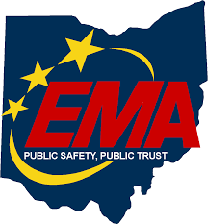Ohio EMA provides tips for disaster aid
Submitted information
COLUMBUS — The Ohio Emergency Management Agency (Ohio EMA) reminds Ohioans wanting to help hurricane survivors in Texas, Florida, and Puerto Rico to donate responsibly.
“Ohioans are caring and giving and want to help. It is one of the things I love about this great state, but we must give responsibly,” said Sima Merick, executive director of the Ohio EMA. “Monetary contributions to a trusted organization is the best approach, especially with the logistical issues of sending donated goods to Puerto Rico.”
 Financial contributions are the most efficient method of donating, according to the Federal Emergency Management Agency (FEMA). Funds provide responding organizations the most flexibility in obtaining the needed resources, at the correct time, and moves money into the local economy to help businesses recover.
Financial contributions are the most efficient method of donating, according to the Federal Emergency Management Agency (FEMA). Funds provide responding organizations the most flexibility in obtaining the needed resources, at the correct time, and moves money into the local economy to help businesses recover.
Unsolicited donated goods such as used clothing, miscellaneous household items, or perishable foods require helping agencies to redirect valuable resources away from providing services to sort, package, transport, warehouse, and distribute items that may not meet the needs of disaster survivors.
To find a trusted organization, try the National Volunteer Organizations Active in Disasters (VOAD) at www.nvoad.org, which vets voluntary, faith, and community based organizations that are active during disasters, and are a trusted way to donate to disaster survivors. In addition to the national members, each state has voluntary organizations active in disasters (Ohio VOAD at https://ohvoad.communityos.org/cms/.
If you’d like to donate or volunteer to assist those affected by disaster, these organizations are the best place to start. Other tips from FEMA and the Ohio EMA include:
- Affiliate with existing non-profit organizations before coming to the disaster area. Immediately following a disaster, a community can become easily overwhelmed by the amount of generous people who want to help. Contacting and affiliating with an established organization will help to ensure that you are appropriately trained to respond in the most effective way.
- Do not self-deploy. Wait until a need has been identified and the local community impacted has requested support. Sign up to volunteer, and wait to travel until opportunities have been identified. Once assigned a position, make sure you have been given an assignment and are wearing proper safety equipment for the task.
- Be patient. Recovery lasts a lot longer than the media attention. There will be volunteer needs for many months, often many years, after the disaster – especially when the community enters the long-term recovery period.
POSTED: 10/06/17 at 7:06 am. FILED UNDER: News







